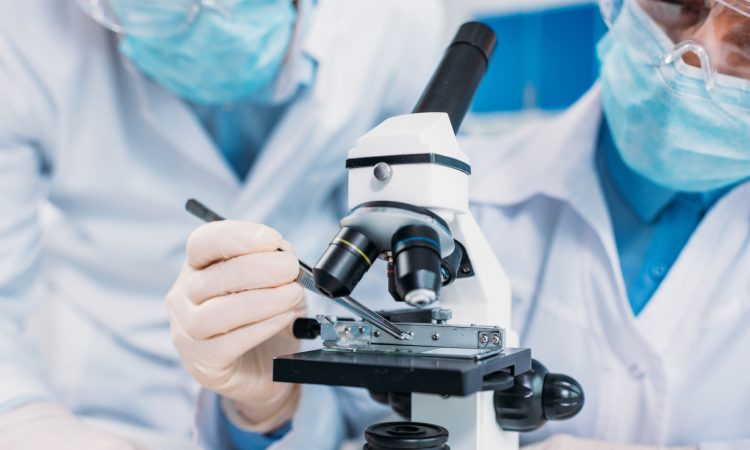Why Modern Scientists ARE Using the Warburg Effect to Fight Cancer and Why Oncologists Are NOT

When Dr. Otto Warburg died in 1970, the medical field had moved far away from his research into the metabolic origins of cancer. Everybody was certain cancer was caused by bad genes.
Dr. Warburg and his two Nobel prizes became just a curious footnote in the history books.
Then, in the late 1970s, Peter Pedersen of the National Institutes of Health discovered Dr. Warburg’s research. Realizing Warburg’s insights should not be ignored as science seeks to conquer this horrible disease, he has devoted his career to continuing Dr. Warburg’s work.
One of his assistants, Young Ko, injected rats with 3 bromopyruvate (3BP). She discovered 3BP interfered with cancer’s metabolism. It miraculously cleared up their tumors.
3BP worked by interfering with cancer’s ability to obtain energy from fermentation.
Eventually, she was able to apparently cure a teenager’s brain tumor with it.
For years, the rights to using 3BP was tied up in a court case. She is still seeking funding to continue her work with 3BP. The holdup could be because recently three cancer patients in a clinic in Germany “allegedly” died because of it. Nobody yet knows why those three patients died.
Imagine if chemotherapy or radiation treatments were held to this same standard.
The co-discoverer of DNA, James Watson, remains an active scientist. In 2009, after the failure of the Cancer Genome Atlas to nail down genetic causes of cancer, he called for scientists to research the metabolic theory.
Meanwhile . . . at Yale, a research scientist named Dr. Thomas Seyfried tested an anti-cancer drug for a small pharmaceutical company.
He tested it with a group of mice against a control group (both groups had tumors).
Soon, he noticed the mice receiving the drug were losing weight. The drug reduced their appetite.
But their tumors were shrinking.
To keep the control group of mice equal to the drug group, Dr. Seyfried reduced the control group’s rations so they would lose weight too.
Their tumors began shrinking too.
Dr. Seyfried had to tell the company their drug didn’t work. Or rather, it worked only by making the mice lose their appetites. It worked because it mimicked caloric restriction.
But he began asking himself: How many other drugs in use against cancer worked only because they made the patients lose weight?
Nausea and loss of appetite are the two biggest things people complain about when they undergo chemotherapy.
What if that explained part of why chemotherapy drugs work sometimes?
Even more important: Why did eating less make tumors shrink?
Dr. Seyfried Begins Researching Cancer Metabolism
Dr. Seyfried admits he never heard of Dr. Warburg before 2000. However, he read Dr. Warburg’s papers. And then those of Dr. Peter Pedersen, and the work of Carlos Sonnenschein and Ann Soto, who attacked the genetic theory of cancer. And, with his background in genetics, he could interpret the complicated data from The Cancer Genomic Atlas project.
He put everything together the way nobody else had ever done. He connected the last dots to explain the prime cause of cancer.
And he wrote his book, Cancer as a Metabolic Disease. However, he wrote it for his professional colleagues. So unless you’ve got a degree in biochemistry, you probably won’t understand its technicalities.
This podcast episode is a great introduction to Dr. Seyfried and his recommendations for fighting cancer:
https://thequantifiedbody.net/water-fasts-as-a-potential-tactic-to-beat-cancer/
In Turkey, Dr. Abdul Kadir Slocum is also experimenting with metabolic cancer therapies. He has an advantage over U.S. oncologists. Turkish law allows him more flexibility for treating patients with extremely advanced cancers. If a patient is almost certain to die anyway, why not try anything reasonable that might work?
In the United States, this approach worked for AIDS. The drug cocktail combination doctors now routinely use to treat HIV patients was developed by doctors experimenting on patients who were going to die anyway. If you lived through the mid-late 80s, you remember how AIDS panicked society.
However, oncologists in the US are worried about being sued for medical malpractice. If they try anything different than standard therapy and the patient dies, even if the death has nothing to do with the experimental therapy, they could be sued.
Dr. Slocum reports large increases in the numbers of his patients surviving their advanced cancers.
The Charlie Foundation has received so many requests for information from cancer patients that they’ve officially changed their focus from ketogenic diets just for children with epilepsy to ketogenic diets for everybody.







